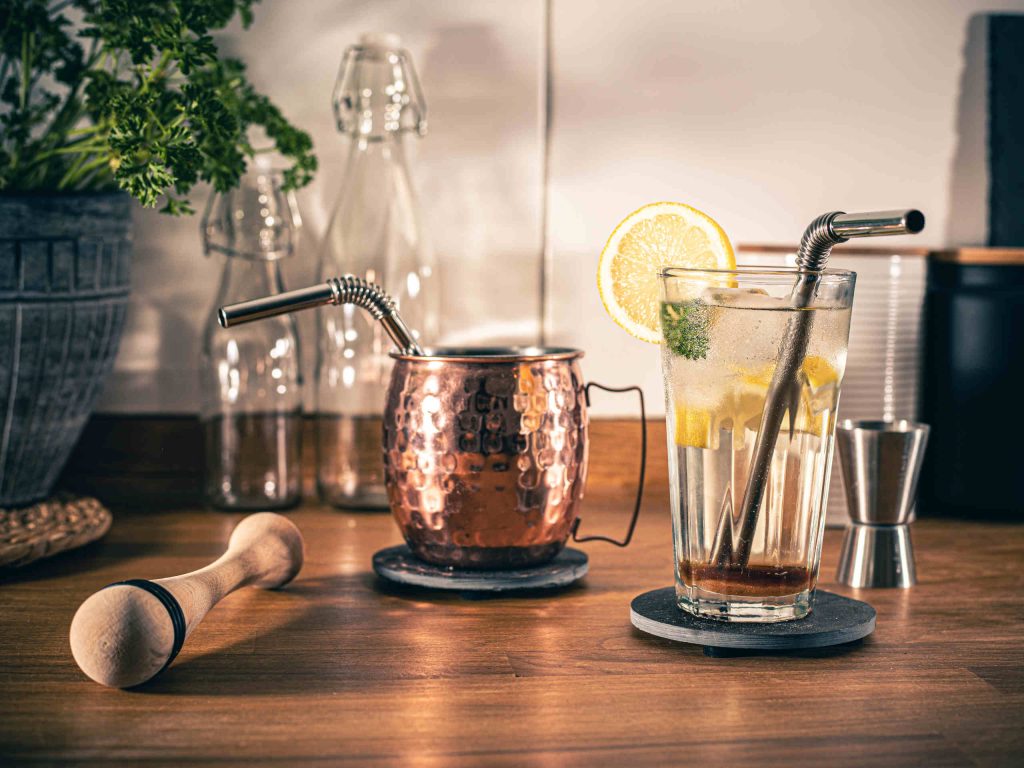
That was it for disposable plastic plates, disposable plastic cutlery and plastic drinking straws. Plastic cotton buds, fast food packaging and to-go drinks cups made of polystyrene as well as plastic-covered paper plates were also banned by the EU’s single-use plastic ban regulation. Since then, many single-use plastic products may no longer be produced in the EU and – with the exception of old stocks – may no longer be sold. This also applies to items made from bio-based plastics, which are not made from petroleum but are usually just as difficult to break down.
The goal is clear, the need to change course. Plastic waste accounts for up to 80 percent of maritime litter in the world's oceans alone. It is estimated that up to 12.7 million tons of plastic waste end up in the oceans worldwide every year - the equivalent of one truckload per minute. According to the German Federal Ministry for the Environment, 320,000 disposable cups for hot drinks are drunk every hour in Germany alone - that's 2.8 billion disposable cups per year. Worldwide, one million plastic drinks bottles are sold every minute, and 36.4 billion disposable plastic straws are consumed in the European Union every year. But what alternatives are there?
The “substitute bench” is particularly well filled when it comes to drinking straws. The obvious choice: back to the roots - back to straw. Organic straws, which are obtained from organic grain cultivation in the Hausruck district of Upper Austria, are finding their way into the catering trade. The straws can even be branded using laser marking. Macaroni noodles are also a good alternative to plastic. The catch: the pasta, which is actually produced as food, ends up in the organic waste instead of the cooking pot after this “alien” use. Reusable drinking straws made of glass or stainless steel are more maintenance-intensive. They are not always easy to clean, but they are tasteless. My favorite is the “Turtleneck Straw”. A stainless steel straw that is even bendable and can be cleaned in the gastro dishwasher.
In the wake of the corona-related takeaway hype, plastic plates and bowls have also come back into circulation. Apart from reusable plates made of porcelain or plastic, it is important to differentiate between alternatives in terms of sustainability. Disposable plates made from palm leaves or, for example, the bagasse that is left over from cane sugar production, are less expensive to produce than cardboard or paper. However, they usually come from plantations where pesticides are used in monocultures or have to be transported from far away. In comparison, bagasse leaves a smaller ecological footprint. This is because the production of paper plates requires more wood, a lot of energy, chemicals and water, which has a similar environmental impact to plastic production.
There are also lunch boxes made from sugar cane fibers. Although they can only be used as disposable products, they are robust, heat-resistant, 100 percent compostable and biodegradable. The same applies to the replacement for drinking cups made of polystyrene: cups made of bagasse fare better than paper cups in the ecological balance sheet - also because the latter are made leak-proof and insulating with a special coating. At the top of the sustainability charts, however, are reusable ceramic cups, such as those used at mulled wine and punch stands during Advent as part of a deposit-return model. Guests don't have to do without the typical “fly-by” character of a market stall or sausage stand when it comes to tableware anyway: There are drinking cups and chip cups made of ceramic - but with a cardboard look.

Summer tourism in Austria is experiencing an upswing – but not without challenges. Between geopolitical uncertainty, climatic changes and changing guest needs, the industry has to reinvent itself. Why “coolcation”, intentional travel and retreat offers will make the difference in the future – and how a hotel on the Arlberg is already serving as a role model.
Barbecuing remains the Austrians’ favorite discipline, as the latest barbecue study 2025 shows. The younger generation in particular is rediscovering the grill for themselves: trend-conscious, internationally inspired and with a focus on taste, quality and sustainability. Read on to find out which barbecue trends will be particularly popular in 2025 and what restaurateurs can take away from them.
From soap in a paper bag to protecting the marine environment: sustainability in the hotel industry is no longer just about organic certificates or reusable drinking straws. Rather, it is clever ideas that are suitable for everyday use, innovative products and genuine commitment that make the difference. This article brings together inspiring examples from the field – and shows how sustainability can become a tangible attitude.


That was it for disposable plastic plates, disposable plastic cutlery and plastic drinking straws. Plastic cotton buds, fast food packaging and to-go drinks cups made of polystyrene as well as plastic-covered paper plates were also banned by the EU’s single-use plastic ban regulation. Since then, many single-use plastic products may no longer be produced in the EU and – with the exception of old stocks – may no longer be sold. This also applies to items made from bio-based plastics, which are not made from petroleum but are usually just as difficult to break down.